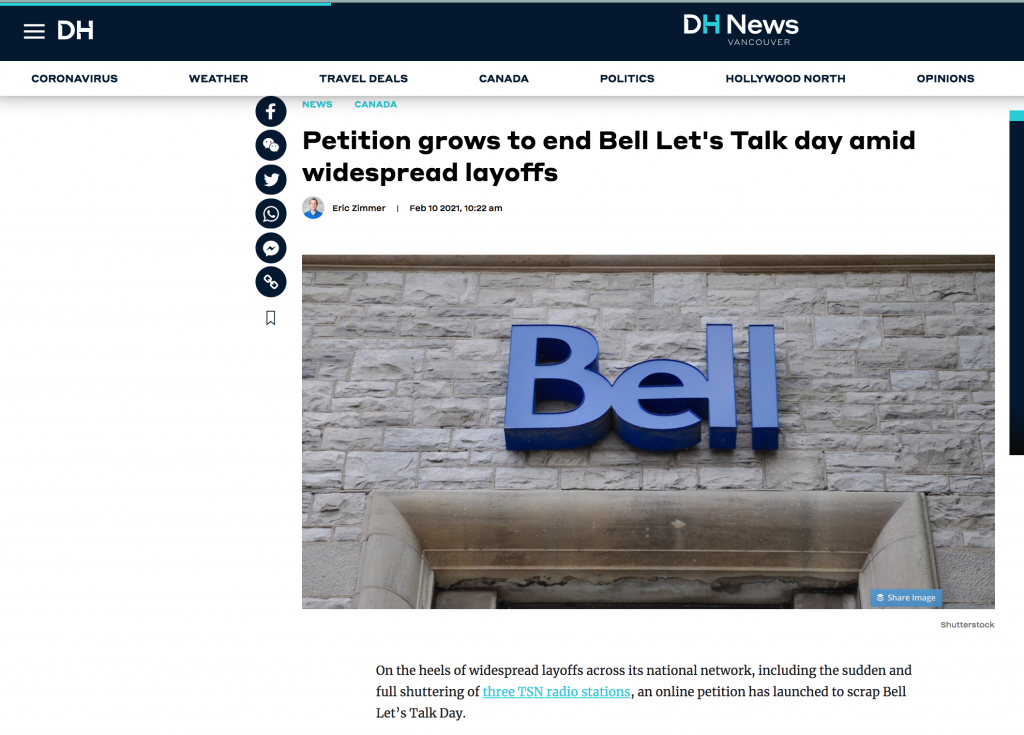Every week there seems to be a new public figure falling from favour online. As behaviours from past and present are available for cut and paste to social media, with millions watching and providing opinions, never before have we been under a stronger microscope.
Last week ABC TV’s The Bachelor host Chris Harrison felt the heat after his controversial reaction to the questionable actions of one of the show’s contestants, Rachael KirkConnell. Photos had surfaced of the reality TV star attending a plantation-themed college party in 2018. Harrison reacted to the news with a request for “a little grace” for Kirkconnell and defended the actions as happening years ago and her intentions not yet being clear. There was an immediate uproar online for Harrison to apologize and leave his role as host of the popular TV show. Many felt that he was making excuses for inappropriate behaviour and using his platform to perpetuate racism.

Within 24 hours of the interview, Chris Harrison released a statement apologizing for his behaviour and taking ownership of his actions. Hours later, he released a second statement announcing that he would be stepping aside from the show, while again apologizing for his words and referencing the importance of learning from one’s mistakes.
From the controversy around Hilaria Baldwin’s questionable Spanish roots to Canadian Gaming CEO Rod Baker breaking quarantine rules to obtain the COVID vaccine from The Yukon, once the news is online, millions are there to judge openly. The reputation of an individual, group or brand is immediately at risk and the response from the accused will make all of the difference when it comes to reputation recovery and timeline.

When crisis hits in 2021, the news cycle is constant and social media will uncover and reveal every detail. Here are some recommendations for how avoid leading a personal or corporate brand into serious trouble.
React immediately
Letting others carry the narrative, without your voice or input, suggests guilt and implies that you are not taking responsibility for your actions or taking the issues seriously. Even if you are not yet prepared to make a full statement, its best to respond quickly while acknowledging the seriousness of the situation and working with a communicator to craft a response that includes sensitivity, responsibility and respect.
Actions speak louder than words
Although your verbal response is important, your actions show commitment and a genuine desire to learn and grow. Actions can also show a disregard for others and a lack of responsibility. For example, heading to a nightclub or party when you should be meeting with various groups and working to right your wrongs, shows that your verbal response may only be lip service.
Corporate brand Bell Media faulted here as they led a national campaign on mental health awareness while executing surprise layoffs across the country. Many see their vocal commitment to mental health as a contradiction, given the fact that some of their employees found out about their job terminations by surprise via social media.

Take responsibility for your role. No excuses, ever.
This is one of the most important steps when facing a crisis and it goes back to lessons that we were taught as children. When we make a mistake, we need to take responsibility for our actions. It sounds simple but there are countless examples where a lack of accountability has tarnished a reputation, sometimes beyond repair. United Airlines learned this the hard way when their team forcibly removed a passenger to accommodate flight crew who needed seats on the airplane. When the footage leaked, United Airlines CEO Oscar Munoz released a statement that minimized what had taken place, taking no responsibility for the inappropriate manner in which his team handled the incident. Although he eventually admitted to their failures, with apologies and dedicated steps to ensure better service, it was too late. The company suffered a huge blow to their reputation as well as a drop in revenues.
Another common mistake is reacting with a defensive tone. Whether you have made a mistake or whether time will show a misunderstanding, defensiveness implies guilt and shows ego, leaving the public asking a lot of questions about character. Vancouver’s NPA party learned this recently as they released a statement in response to a photograph of one of their members using a hand symbol associated with white supremacy. Their response was full of defensive blame shifting, leaving the public to wonder why they were not holding themselves accountable.
Avoid future mistakes
Often the only benefit that comes from a crisis situation is a lesson in how to improve and what to do differently. If you simply apologize and move on, it’s likely that a similar incident will pop up again at some point. It’s important to get to the root of the problem and identify what needs to change. As an organization, do you need to bring on a consultant who can help with diversity and inclusion training? Do you need to incorporate more security steps into how a product is manufactured or improve the workplace environment for those who work with you? The public is often willing to forgive you for your mistakes but when you repeat the same mistake, don’t expect the same level of understanding.
Be prepared
Every organization or public figure should have a crisis communications plan in place that has been developed by a professional. Having steps in place that guide the team on how to respond, is key, as reacting quickly is important but doing it right is vital.